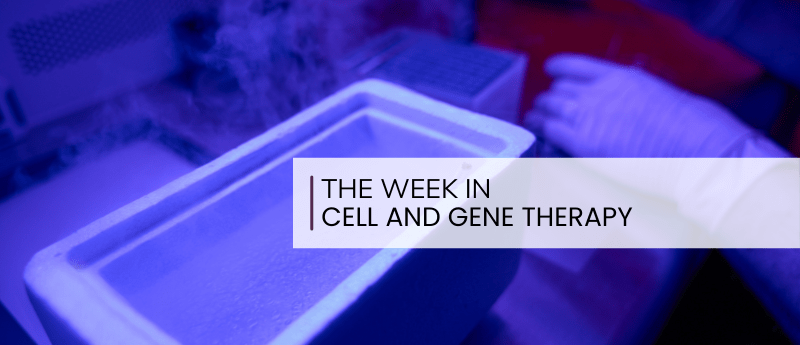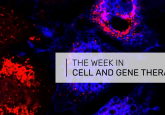Cell therapy weekly: Transforming organ transport at cryogenic temperatures

This week: The California Institute of Regenerative Medicine (CIRM; CA, USA) has granted funding to realize an ovarian cancer therapy, the US Food and Drug Administration (FDA; MD, USA) has designated Pacira BioSciences’ (FL, USA) gene therapy product a Regenerative Medicine Advanced Therapy (RMAT) and X-Therma (CA, USA) raises US$22.4 million to progress its cold-chain technology for cells, tissues and organ transport.
The news highlights:
- Funding granted to advance an oncolytic adenovirus for the treatment of ovarian cancer
- RMAT designation for osteoarthritis-treating gene therapy product
- X-Therma raises US$22.4 million to progress its cold-chain technology
Funding granted to advance an oncolytic adenovirus for the treatment of ovarian cancer
CIRM has pledged US$5.3 million to Calidi Biotherapeutics and City of Hope (Both CA, USA), a National Cancer Institute-designated comprehensive cancer center, for the advancement of CD-101.
The funding will support various aspects of the project, including preclinical translational studies, product manufacturing and clinical trial design.
Calidi Biotherapeutics’ CD-101 represents a promising treatment approach for chemo-resistant, metastatic ovarian cancer. It operates by delivering oncolytic adenoviruses directly to tumor sites through the use of tumor-tropic neural stem cells.
“We are delighted to receive this financial support from CIRM, which enables us to complete the preclinical translational studies, product manufacturing, and clinical trial design needed for FDA approval to move this novel treatment to ovarian cancer patients within two to three years. This CIRM grant will allow us to further utilize Calidi’s manufacturing processes, which we believe will optimize the potency of the CLD-101 oncolytic virotherapy treatment product and improve clinical outcomes for women with stage III ovarian cancer,” added Karen Aboody, City of Hope professor in the Department of Stem Cell Biology and Regenerative Medicine and Division of Neurosurgery and the project lead.
RMAT designation for osteoarthritis-treating gene therapy product
The FDA has granted RMAT designation for Pacira BioSciences’ gene therapy product candidate that treats osteoarthritis of the knee.
The therapy, called PCRX-201, is an intra-articular helper-dependent adenovirus that encodes interleukin-1 receptor antagonist (IL-1Ra). The expression of the cytokine inhibitor, IL-1Ra, is instrumental in blocking inflammation and pain-associated catabolic processes. The therapy also displays a localized response to afflicted joint tissues, as, in the presence of inflammation signaling, it induces a patient’s cells to produce and sustain therapeutic levels of IL-1Ra through an inducible promoter.
“We are honored to receive FDA’s first-ever [Regenerative Medicine Advanced Therapy] designation for a gene therapy product candidate in osteoarthritis,” remarked Frank Lee, CEO of Pacira BioSciences. “We continue to be encouraged by the preliminary clinical findings supporting PCRX-201 as a potential disease-modifying therapy for osteoarthritis and we look forward to presenting additional follow-up data later this year.”
X-Therma raises US$22.4 million to progress its cold-chain technology
A recent Series B funding round has raised US$22.4 million for X-Therma, which will enable the biotechnology company to scale global commercial operations and facilitate the progression of their cold-chain products to the clinical stage.
These include technologies like the mammalian-cell cryopreservation media XT-Thrive®, the organ preservation solution XT-ViVo® and TimeSeal®, an organ transport device that does not require external power and uses integrated and intelligent sensors to transmit real-time data to maintain optimal storage conditions.
“This funding marks a pivotal moment as we prepare to launch our GMP-grade cryopreservation and cold-chain solutions into the commercial market, responding to growing demand in Cell and Gene Therapy and bioprocessing,” commented Xiaoxi Wei, co-founder and CEO of X-Therma. “It also propels us to the forefront of organ transplantation innovation, with our emerging products that could eliminate time as a critical constraint, with the potential to save millions of lives.”
You may also like:
 Turning the attention of CAR-T to autoimmune disease
Turning the attention of CAR-T to autoimmune disease
ATA3219g is an allogeneic CAR T-cell therapy that alleviates lupus nephritis. It works by targeting the CD19 transmembrane protein found in B-cell malignancies, effectively fighting dysfunctional immune cells with engineered immune cells.





